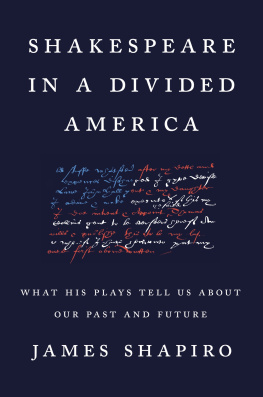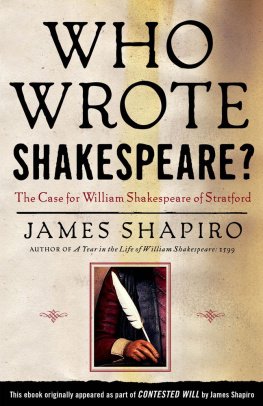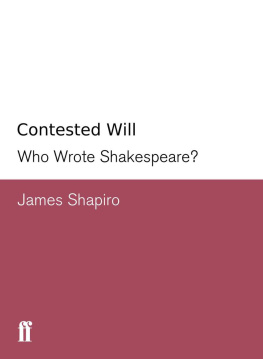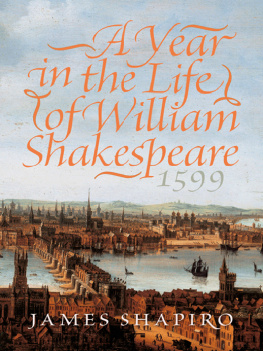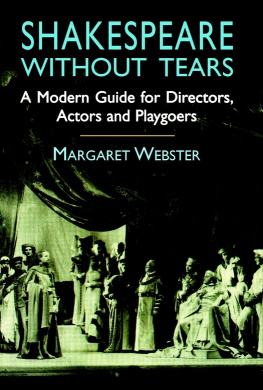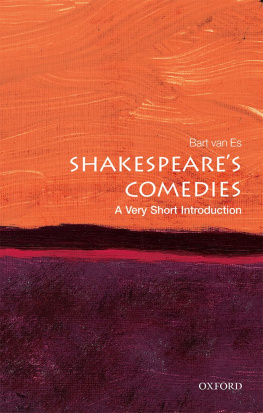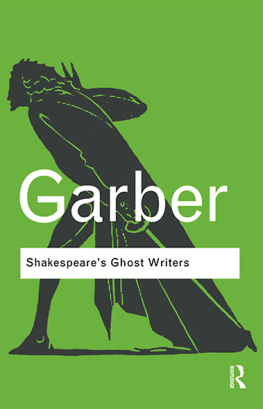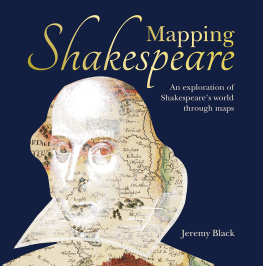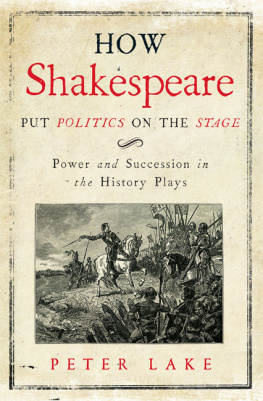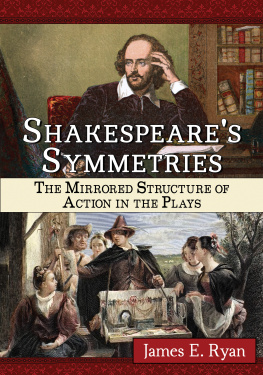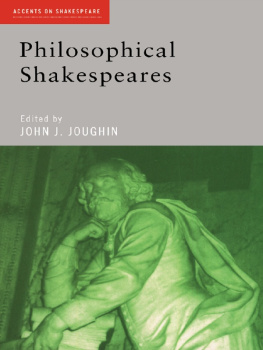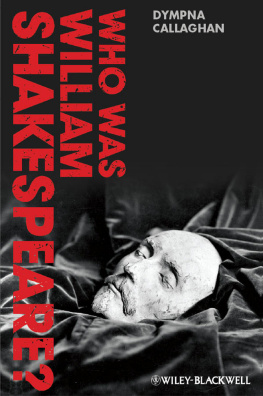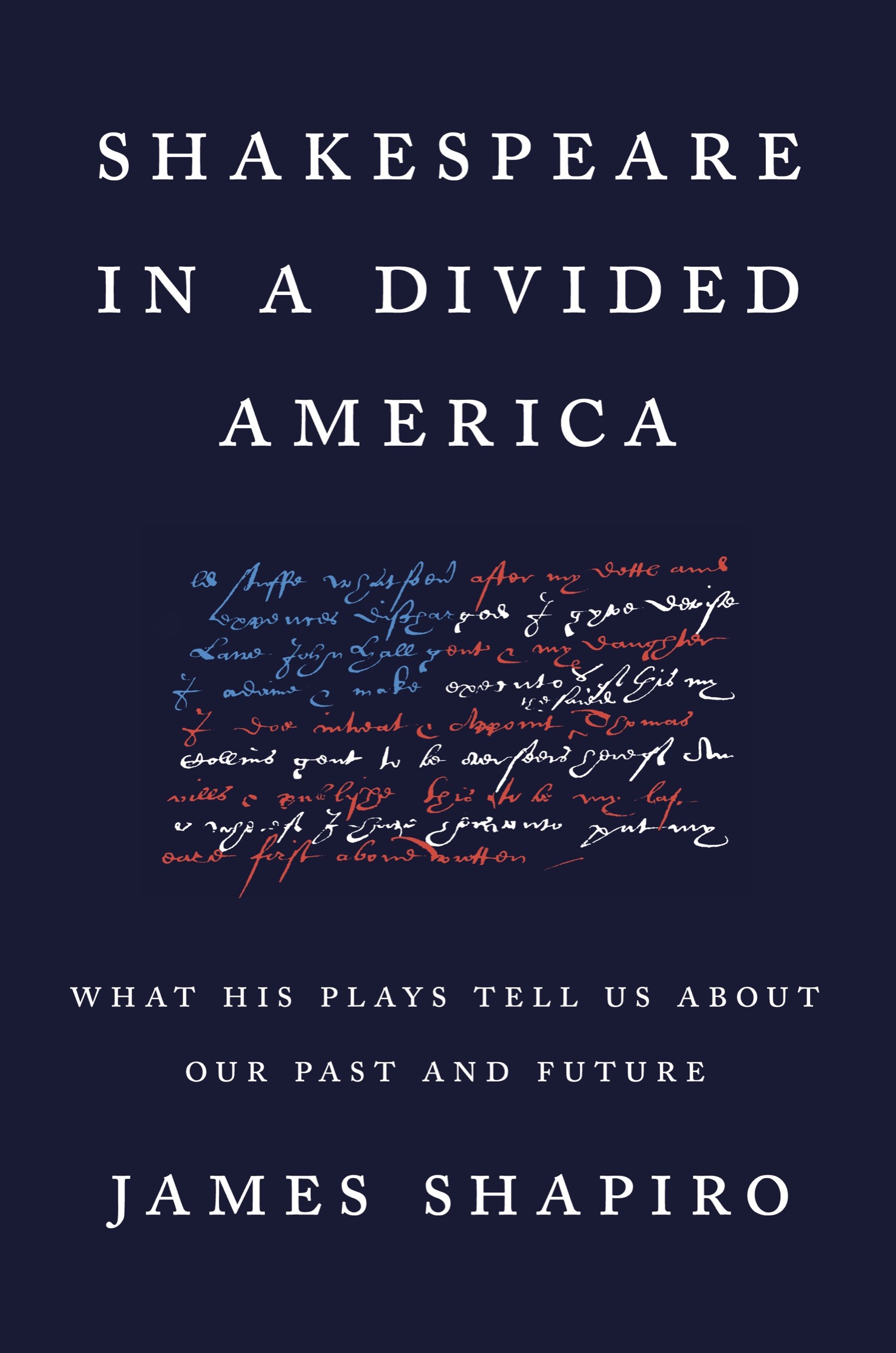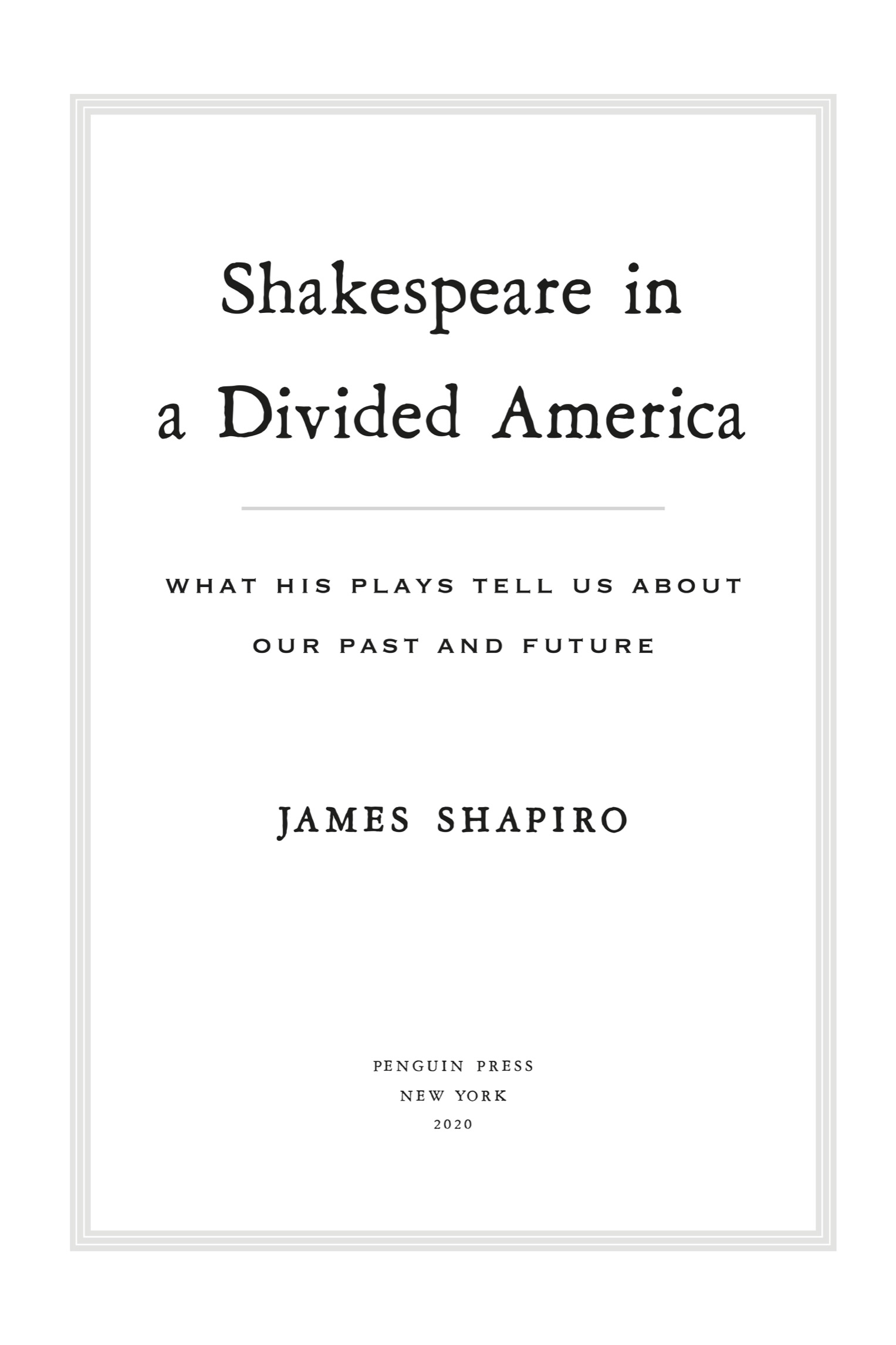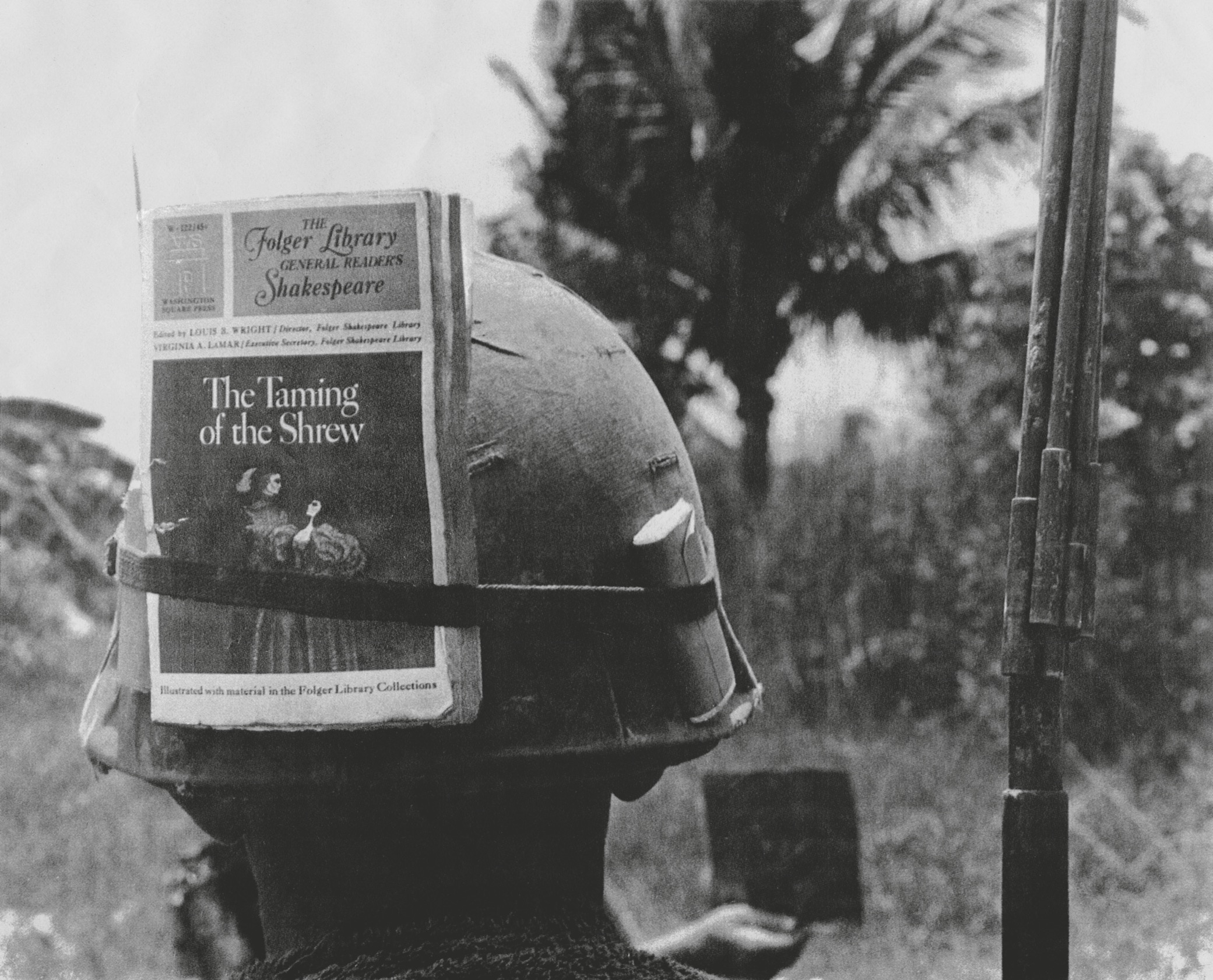Introduction
Read by almost everyone at school, staged in theaters across the land, and long valued by conservatives as highly as by liberals, Shakespeares plays remain common ground, one of the few places where Americans can meet and air their disparate views. For well over two centuries, Americans of all stripespresidents and activists, writers and soldiershave also turned to Shakespeares works to give voice to what could not readily or otherwise be said.
That engagement dates back to before the Revolutionary War, when Hamlets famous soliloquyTo be, or not to bewas appropriated both by defenders of British rule and by those seeking to overthrow it. Not long after, Shakespeares contentious histories offered the Founding Fathers, all too aware of the vulnerabilities of the government they had created, a road map for where the young republic might be heading. Those who read these plays with a view to... the treachery, perfidy, treason, murder, cruelty, sedition, and rebellions of rival and unbalanced factions, President John Adams warned, would find one of the most instructive examples for the perusal of this country. A prescient Adams even reworked a passage from Henry V to show how a foreign despot might collude in putting a more pliable leader in the White House.
Yet in those early years of the republic it seemed improbable that Americans would adopt Englands national poet as their own. They had fought the British in 1776 and in 1812 would again be at war. Moreover, the strain of puritanism entrenched in the northern colonies was rabidly anti-theatrical. The Quaker William Penn, who founded the Pennsylvania colony, had attacked the infamous plays of writers like Shakespeare and helped enact laws suppressing their performance. In 1774 the first Continental Congress was still admonishing colonists to shun theaters. Pennsylvania only ended its ban on playgoing in 1789 and Massachusetts, the last holdout, in 1793.
How Shakespeare won over America in the early nineteenth century is something of a mystery. The absence of rivals had a good deal to do with it. So too did the growing familiarity with his works. Actors from Britain toured the land with a repertory rich in Shakespeare while schoolbooks featured his famous speeches. One of them, McGuffeys Reader, first published in 1836, sold more than 120 million copies over the next eighty years. Another, Scotts Lessons in Elocution, found its way into the humblest of American homes, including the log cabin in which Abraham Lincoln was raised. Yet there was more to it than the lack of competitors and Shakespeares widespread availability in schoolbooks and cheap editions. The French author Alexis de Tocqueville, gathering material for his book Democracy in America, noted that he first picked up a copy of Henry V in a log cabin while touring the United States in 1831, and added that there is hardly a pioneers hut that does not contain a few odd volumes of Shakespeare. A half century later, the German writer Karl Knortz said of America that there is certainly no land on the whole earth in which Shakespeare and the Bible are held in such high esteem.
It helped that in a Bible-obsessed nation, Shakespeares language sounded so similar to that of the King James Version (1611), contributing to the sense that his plays were a kind of secular scripture. Yet it was more than the thees and thous of Elizabethan English that drew Americans to his words. Many of the issues that preoccupied Shakespeare and his contemporaries in the late sixteenth centurythe dangers of autocratic rule; the imagined threat posed by those of different races, religions, or nationalities; the slippery boundaries of genderwere still unsettling to nineteenth-century Americans. Shakespeare had usefully framed these as conflicts (resolved through bloodshed in his histories and tragedies, and more peacefully, if provisionally, in his comedies), social and political collisions that could be readily viewed through the prism of Americas past and present. Yet much of the mystery of Why has America embraced Shakespeare? remains unsolved. All one can safely say is that Shakespeare took root in the United States because he spoke to what Americans cared about. But his plays were not interpreted by everyone in the same ways, especially as divisions deepened between social classes, between the industrial North and slaveholding South, between new waves of immigrants and earlier settlers, as well as between those who believed in Americas Manifest Destiny and those wary of such imperial ambitions.
At first glance it seems almost perverse that Americans would choose to make essential to their classrooms and theaters a writer whose works enact some of their darkest nightmares or most lurid fantasies: a black man marrying then killing a white woman; a Jew threatening to cut a pound of a Christians flesh; the brutal assassination of a ruler deemed tyrannical; the taming of a wife who defies male authority. Hamlet alone touches on incest, suicide, drunkenness, adultery, and fratricide. As I write these words in November 2018, a news report describes how parents of students at Mitchell High School in Bakersville, North Carolina, were shocked to discover that a performance of the satirical 1987 adaptation The Complete Works

